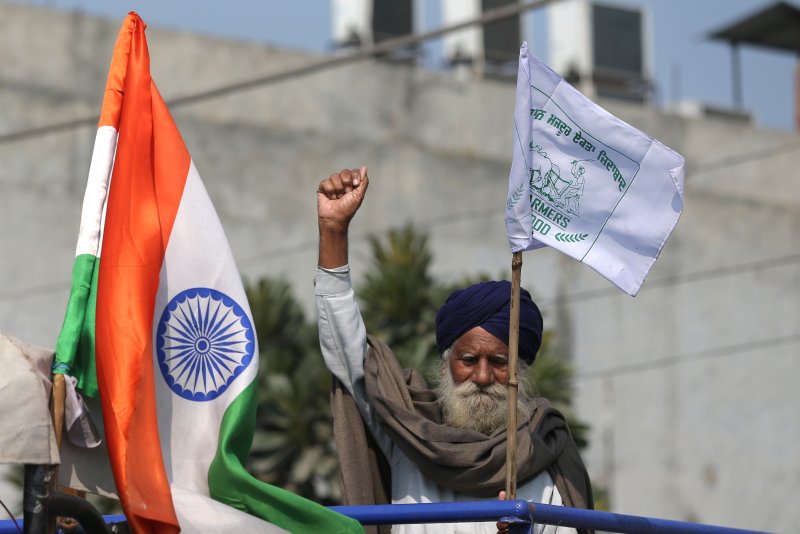DIRECT ACTION GETS THE GOODS
Indian farmers end a year of protests after government drops controversial lawsBy Simon Druker

Farmers in India on Thursday, ended more than a year of protests over new laws governing the country's farming industry. The laws were introduced in September 2020, but repealed last month by Prime Minister Narendra Modi. File Photo Pal Singh/EPA-EFE
Dec. 9 (UPI) -- Indian farmers on Thursday, ended more than a year of protests related to a set of laws introduced last September, meant to overhaul and modernize the country's farming industry.
The decision to stop the protest came after the government also agreed to listen to demands including guaranteed prices for produce and dropping criminal cases against protesting farmers.
The laws gave corporations the ability to control the country's farming industry, with smaller producers worried about being left out of the supply chain. They also did away with the minimum support price (MPP) which was set by the government on certain produce. The loosened restrictions opened the industry to the free market, which farmers had been protected from for years.
Last month, Indian Prime Minister Narendra Modi withdrew the agriculture laws, during a live, nationally televised announcement.
RELATEDIn surprise move, India PM Narendra Modi pulls unpopular farming laws
The movement eventually became one of the largest political challenges for Modi and his government.
Local protests began shortly after the laws were initially passed. Support quickly gathered to include tens of thousands of farmers in India, with an official movement starting approximately two months later. The movement also garnered international support, with supporters demonstrating in a number of other countries around the world.
Leaders say ending the protests is contingent on the government following through with its promises. Farming unions will meet in January to ensure Modi keeps his word.
"Farmers have decided to suspend this agitation for now, but the movement will not end. The fight for farmers' rights will continue," senior Punjab leader Balbir Singh Rajewal told local media.

















